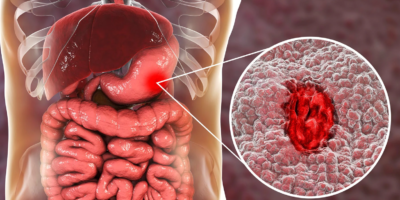Bad breath affects an estimated 25 to 30 percent of the world’s population. About 2.4 percent of adults have chronic halitosis. The majority of the time, the origin is in the mouth. Examples include gum disease, dental cavities, coated tongue (sometimes a white or yellow layer blankets the tongue, usually due to inflammation), and poor oral hygiene. Beneficial microorganisms normally line our entire intestinal tract, peacefully coexisting with us. However, oral diseases involve the proliferation of certain microorganisms that produce sulfurous smells. Smokers have bad breath. Food and drink, such as onions, garlic, coffee, and alcohol, can temporarily taint breath.


1. Freshen Up
How it works: All green plants contain chlorophyll, which neutralizes odors. Also, aromatic herbs contain essential oils that freshen breath.
- PREPARATION: Fresh sprig of parsley, basil, mint, or cilantro
- DIRECTIONS: Place a sprig of any of these leaves in your mouth, chew, and swallow.
- YIELD: 01 APPLICATION
2. Lemon Breath Lift
How it works: Lemon contains essential oils that create the characteristic zesty (or citrus) scent. It’s long been used to reduce unpleasant odors. Both lemon and pomegranate contain flavonoids that help strengthen connective tissues, such as those in the gums. Pomegranate also has a mild antibacterial effect.
- PREPARATION:
- 1 cup (235 ml) water
- 2 tablespoons (28 ml) fresh lemon juice
- 1 tablespoon (15 ml) pomegranate juice
- 1 packet (1 g) stevia, or to taste
- DIRECTIONS: Pour the water and pomegranate juice into a glass and stir in the lemon juice. Add the stevia. Drink in the morning (after your daily cuppa joe)
- YIELD: 01 SERVING
3. Citrus Fresh Breath
How it works: Citric acid will stimulate the salivary glands to create saliva, which is a natural breath freshener.
- PREPARATION: 1 organic lemon or orange
- DIRECTIONS: Wash the rind thoroughly and tear off a piece. Chew for a flavorful, mouth-freshening burst.
- YIELD: 01 APPLICATION
4. Crunch It
How it works: Raw, crunchy foods clean the teeth. Apples contain pectin, which helps control food odors. It also promotes saliva, which cleanses breath. Cinnamon is antimicrobial. Yogurt contains the type of bacteria you want in your intestinal tract. Studies show that the active bacteria and cultures in yogurt help reduce odor-causing bacteria in the mouth.
- PREPARATION:
- 1 cup (150 g) apple chunks
- 1 cup (110 g) grated carrot
- 1 cup (120 g) diced celery
- ½ cup (60 g) dried cranberries
- ½ cup (60 g) crushed walnuts
- 3 to 5 tablespoons (45 to 75 g) plain nonfat yogurt
- Ground cinnamon
- DIRECTIONS: Mix the apple, carrot, celery, cranberries, and walnuts together in a large bowl. Add the yogurt by the tablespoon (15 g) to moisten the mixture and hold it together slightly. Divide between two plates, sprinkle with cinnamon and serve.
- YIELD: 02 SERVING
5. Tongue Scrape
How it works: The coating on the tongue contains some mixture of dead tongue cells, bacteria, and fungi that become trapped between the small projections (papillae) on the tongue’s surface. Daily tongue scraping and brushing decreases this material carpeting the tongue and improves mouth odor.
- PREPARATION: Tongue scraper or spoon
- DIRECTIONS: Each morning, gently scrape your tongue. It helps to hold the tip of the tongue with a piece of gauze or a clean cloth so that you can pull it forward to better clean the back of the tongue (and reduce the chance of stimulating your gag reflex).
- YIELD: 01 SESSION EVERY MORNING
6. Peroxide Swish
How it works: Hydrogen peroxide’s oxygen content kills the bacteria in your mouth that cause bad breath.
- PREPARATION:
- 2 tablespoons (30 ml) hydrogen peroxide
- 2 tablespoons (30 ml) water
- DIRECTIONS: Mix the hydrogen peroxide and water in a clean glass. Swish in your mouth for 30 seconds and then spit out. Rinse twice a day, once in the morning and once in the evening.
- YIELD: 01 APPLICATION
7. Mouthwash in a Minute
How it works: Peppermint is antimicrobial. Baking soda changes the pH (acid) levels in the mouth, creating an anti-odor environment.
- PREPARATION:
- 1 cup (235 ml) water
- 1 teaspoon (5 g) baking soda
- 3 drops peppermint essential oil
- DIRECTIONS: Mix together all the ingredients. Pour into a clean glass jar with a tight-fitting lid, cap, and shake. Use a small amount to rinse your mouth for about 30 seconds. Spit out—do not swallow.
- YIELD: SEVERAL RINSES; MAKE A FRESH BATCH AFTER A FEW DAYS, OR ALTER THE RECIPE TO MAKE A LITTLE AT A TIME.
8. Yogurt Breath Blaster
How it works: Studies say that yogurt’s active bacteria may help control the mouth bacteria that release malodorous chemicals, such as hydrogen sulfide. In one study, researchers found that eating 6 ounces (170 g) of yogurt a day reduced levels of this gas.
- PREPARATION:
- 1 cup (230 g) vanilla yogurt
- 1 cup (170 g) sliced strawberries
- ¼ cup (30 g) chopped walnuts
- Sprigs of mint
- DIRECTIONS: Combine the yogurt, strawberries, and walnuts in a small bowl. Top with mint sprigs and serve.
- YIELD: 01 SERVING
9. Fresh Chew
How it works: These spices all have antiseptic qualities that help fight halitosis-causing bacteria and sweeten your breath.
- PREPARATION: Handful of fennel seeds, cloves, or aniseeds
- DIRECTIONS: Pop your spice of choice into your mouth. Chew the seeds, savoring the release of their fresh and spicy, odor-fighting tastes.
- YIELD: 01 SERVING
Lifestyle Tip
- If you wear dentures, remove them at night and clean them before returning them to your mouth. Removing daily bacterial buildup days from food and drink helps keep your breath fresh.
- Quit smoking to reduce bad breath, which is the least of your problems if you are a smoker. It’s a tough habit to kick, but worth the effort. Ask your doctor for information about how to get off tobacco.
- When nothing else is available, swish fresh, cool water around in your mouth. water freshens your breath and makes you feel better in general.
- Practice good oral health regularly:
- Brush your teeth after every meal.
- Be gentle on your gums.
- Floss at least once a day, preferably twice, before you brush.
- If you can’t brush after a meal, drink water, swish, and spit to remove residual food particles.
- Replace your toothbrush every two to three months.
- Keep up with regular dental checkups, including cleanings. Ask your dentist how often you should come.
When to Call the Doctor
- Halitosis persists despite improved oral hygiene.
- You notice your tongue often looks coated.
- Your mouth is often dry.
- You have sores in your mouth, painful gums, or tooth pain (for example, when drinking cold liquids or chewing).
- You have diabetes or another chronic condition and notice a change in your breath.
- You feel ill. (Infection of the tongue, throat, and gums, oral cancer, and many other illnesses affect the breath.)






Leave a Reply